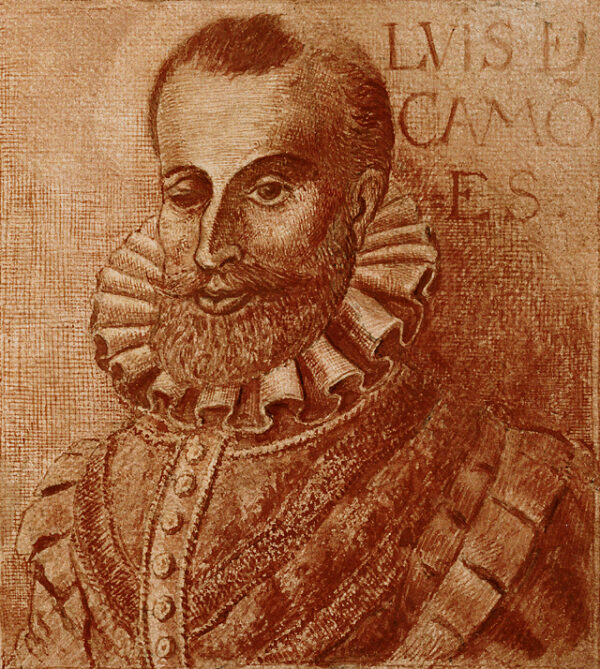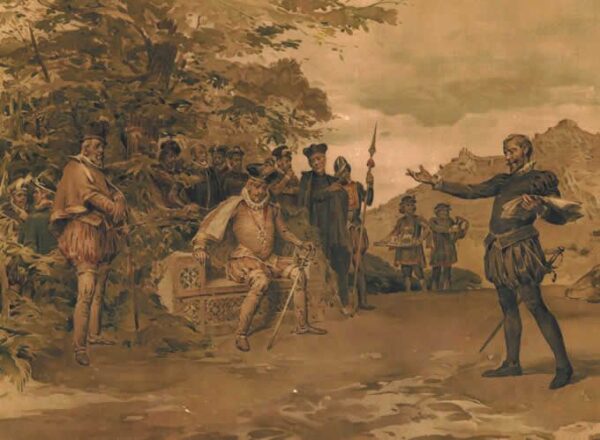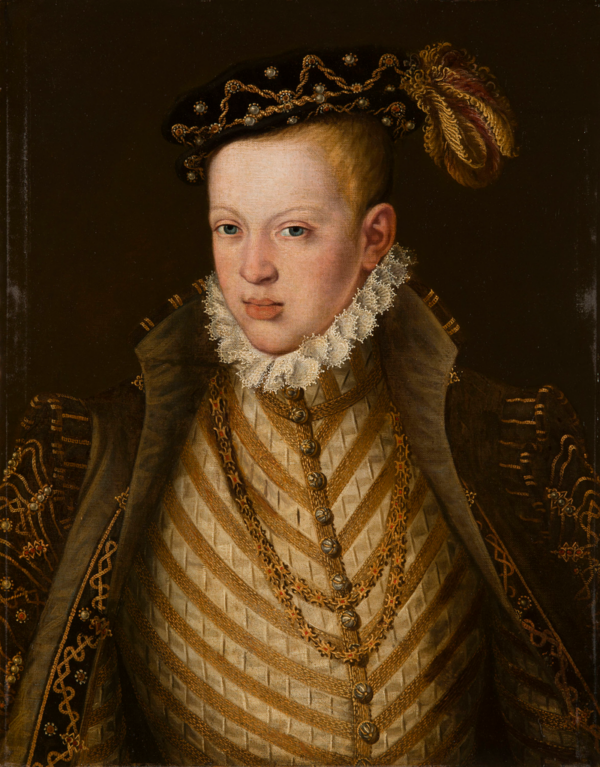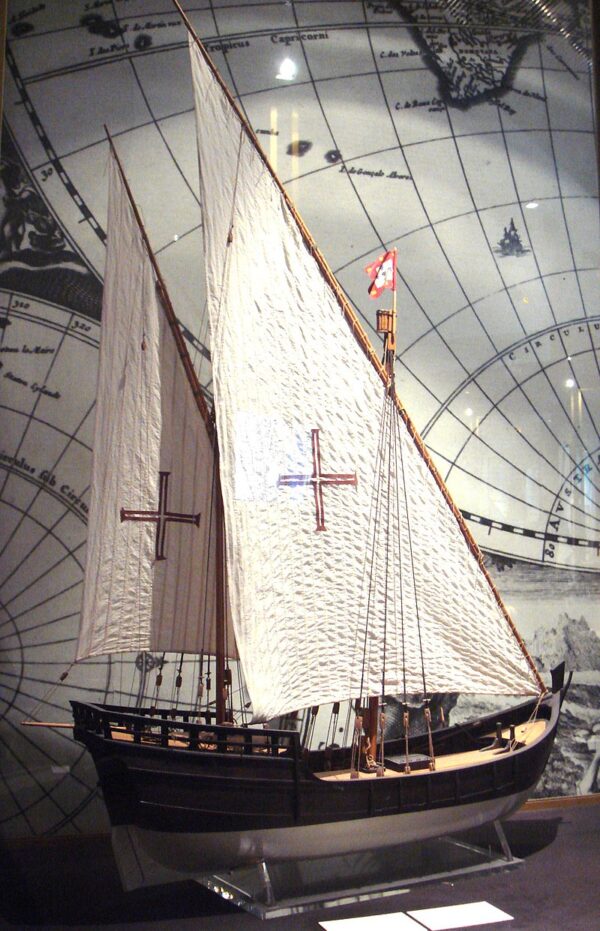

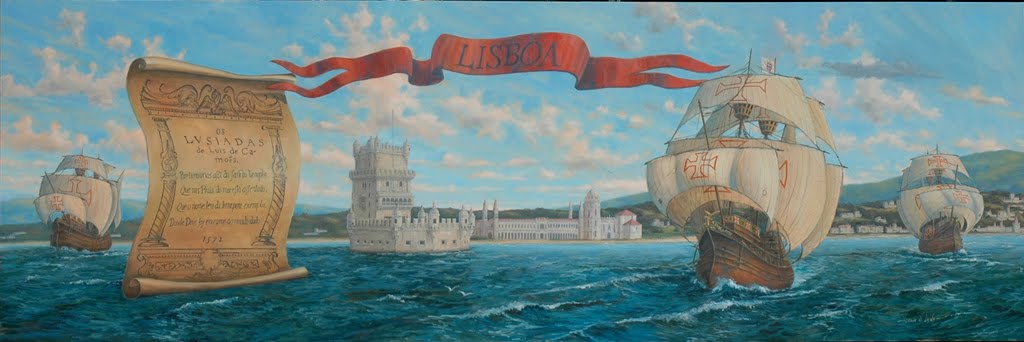
The weapons and barons marked,
That from the western Lusitana beach,
By seas never sailed before.
Most Portuguese people know these opening lines of “The Lusiads” (“Os Lusiadas”), a Portuguese epic poem by Luís Vaz de Camões, first published in 1572.
Written three years after the poet’s return from India, it narrates Vasco Da Gama’s journey to India and celebrates the achievements of the Portuguese nation. It is viewed as Portugal’s national epic poem, in the same way that Homer’s “Iliad” or “Odyssey” is for the ancient Greeks and Virgil’s’ “Aeneid” for the ancient Romans.
The “Lusiads” is one of the most important works of Portuguese literature and remains a national treasure to this day.
During the 16th century, the world opened to exploration. At the height of the Renaissance, explorers set off to discover new horizons. Portugal was a country of navigators, and one of its greatest explorers was Vasco da Gama, who became the first European to reach India via the Atlantic Ocean, discovering a new sea route.
The “Lusiads” is the story of his journey, intertwined with classical mythology, fantastic elements, and episodes of Portuguese history. Camões’s poem immortalized the achievements of Portuguese explorers, as well as the country’s glorious history. He chose the fitting title “Lusiads”; it is derived from Luso, a mythologic entity that supposedly founded Lusitania, also known as the Iberian Peninsula.
Inspired by classical literature, Camões chose the epic form, traditionally used to celebrate the achievements of heroes. He wrote in the Homeric style, showcasing his talent as a poet. The epic poem is structured in 10 cantos (songs), with different numbers of stanzas, featuring decasyllables (10-syllable verses) and octosyllables (eight-syllable verses). Four main themes emerge: Da Gama’s voyage, the history of Portugal, the poet’s reflections, and elements of classical mythology.
The epic begins with the poet explanation of the purpose of his work: to sing the deeds of Portuguese heroes in exalted ways.
The first verse, “The weapons and barons marked,” is inspired by Virgil’s “Aeneid,” and allusions to the classical world continue:
Cease from the wise Greek and the Trojan
The great sailings they made;
Shut up from Alexandro and Trajan
The fame of the victories they had;
That I sing the illustrious Lusitano chest,
Whom Neptune and Mars obeyed:
Cease all that the ancient Muse sings,
What other higher value arises.
The poet alludes to Homer and Virgil as the “wise Greek and the Trojan” and refers to ancient history, and references classical mythology with Neptune, Mars, and the Muse.
By alluding to the classical world and following the codes of epic poetry, Camões aims to place the Portuguese among the ancient heroes, proving they are worthy of remembrance.
References to the classical world and literature continue with the invocation. Here the poet asks the Tagides, mythical entities from the Portuguese river Tagus, for inspiration, in the same way as a classical poet would ask inspiration from the muses. In the dedicatory, Camões dedicates his work to King Sebastian of Portugal, who represented hope for the Portuguese nation for spreading the Catholic faith and the Portuguese empire to unknown territories. As such, Camões infuses Portuguese elements with the classical tradition, truly making it a Portuguese epic.
The narration starts in stanza 19, “in medias res” (middle of the action), with the Portuguese already at sea. The story is interrupted by the council of the gods on Olympus, where Roman god Jupiter meets with other gods to decide if the Portuguese will reach India. Jupiter is on the side of the Portuguese and decides in their favor. The mythological reference reinforces the special character of the nation and places the expedition under divine guidance, another reference to the “Aeneid.”
Canto II and III recount the story of Vasco Da Gama’s journey, helped by Venus and Jupiter. The fleet lands at Melinde, a town on the coast of Kenya, and after invoking Calliope, the muse of epic poetry, Da Gama narrates the history of Portugal. He tells the story of Lusus and Viriathus, legendary figures of the Lusitanian people, and enumerates the deeds of the kings of the first dynasty, from Dom Afonso Henriques to Dom Fernando.
Next is the episode of Galician noblewoman Ines de Castro, one of the most famous in the narrative and in Portuguese history. It is classified as a lyric episode, a “sad and worthy case of memory.” The story continues with the recounting of the perils the sailors faced at sea, and the fury of a monster, the giant Adamastor, a mythical representation personifying the dangers of the sea and the unknown.
After Da Gama’s narrative, the story continues with the Portuguese armada sailing to the Indian city of Calicut. Neptune tries to sink the small, maneuverable ships known as caravels, but Venus helps the Portuguese ships. With Calicut in sight, the poet ponders the why great achievement should lead to fame and fortune.
The explorers are well received in port. The people from Calicut admire the ships’ paintings, which depict significant figures and events from Portuguese history. However, Bacchus convinces the locals that the Portuguese are a threat. Fortunately, the armada escapes, and Venus rewards them with an island filled with nereids, or sea nymphs.
In the final canto, Venus shows Da Gama a perfect and magical sphere—the Machine of the World. It is filled with countless prophecies about the future of the world.
Camões exalts the Portuguese who built and extended their empire and who deserve a place among immortal beings. By raising them to the status of mythological gods, the poet immortalized the deeds of Portuguese explorers and their glorious history.
Not only do the “Lusiads” celebrate the great discoveries of early Portuguese explorers, but it also celebrates the enduring spirit of a nation.

